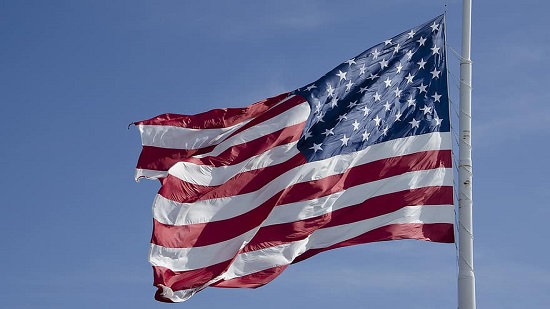The year was 1991.I remember the day we returned to Amman from the Gulf with many other Jordanian families, all of us sensing the coming war after Saddam Hussein s occupation of Kuwait.
The conversation on everyone s lips was about the horror and threat of the imminent battle ahead, the mobilization of global armies in the region, and the weapons, planes and warships accompanying them.
Implications of this revolved around America s powerful ascent to the top and its domination of the international decision-making process.
At that time, America was the ultimate role model for us teenagers.
Back then, I looked up to Bruce Lee. But soon, that shifted and Rambo became my idol. To me, he represented resilience and strength. My generation sought to be like Rambo, to get the latest brand of “jeans” from his country and to wear Nike “kicks” like those sported by Michael Jordan.
However getting those things was difficult, as they were not sold in Jordan. Back then, our only means of acquiring those little luxuries was when expatriates would bring them over as gifts, or sometimes sell them at twice their original price.
America s presence in the region at the time was not just militaristic, it was cultural. The American way of life began to gradually invade the marketplace, restaurants, and the arts (music and film).
The first day a McDonald s branch opened in Amman thousands of Jordanians swarmed it, hoping to try an authentic American burger and with it get a taste of the American dream. The lines were so long that many were turned away and returned the next day to savor that famous meal.
As the world entered the third millennium, America solidified its role as the undisputed superpower; a model for life, work and success, and an aspirational oasis that occupied the imagination and minds of youth at the time. Then, in 2005, fate took me to the “promised land” where I was able to experience the American “miracle” first-hand.
But something changed.
My exaggerated admiration for America decreased and the rose-colored glasses through which I had seen the states was replaced by an objective lens, through which I tried to understand the sources of America s dominance and its powerful position globally.
In 2008, I met Mr. John Sununu. We discussed American policy in the Middle East. I ll admit my naivete about international politics and world powers back then as I had judged American policy and its projects in the Middle East as failures.
However, Mr. Sununu s words woke me up to the truth of the matter. He told me: “If you have any doubt that the United States now has the upper hand in the Middle East and the world, you should read the international politics and its events and tools again.” I will never forget these words nor their impact.
My eyes were finally open.
The collapse of the Soviet Union in the early 1990s represented the greatest turning point in international relations. It ended the “bipolar” balance of power, and with it the Cold War era, making America the unipolar power globally, without any potential competition.
The collapse of the USSR not only helped propel America s hegemonic superiority and leadership on the international stage, but it also resulted in European and Asian countries accepting America s new hegemony; they indicated their willingness to follow America s lead as a competitor to leftist Communist ideology.
In just a few years, the US –along with its European allies– became gatekeepers ensuring the world s security and stability.
However, the vanity inherent in the belief that the triumph of western hegemony had achieved eternal victory has led the US to lose sight of its competitors returning to the international power paradigm.
Now, China and Russia appear ready and able to regain the power of influence in global politics.
Russia and China no longer hide their coordination with the United Nations and its Security Council against American political and military interventions, specifically in projects related to Iran, Syria and Libya; all places where Russia and China have a vested interest.
Today, in light of major global political and economic changes and challenges, only further exasperated due to the COVID-19 pandemic, America is threatened with losing its leadership role in the world unless the current administration renews its commitment to strengthening the international liberal order.
However, this won t be achieved using traditional methods.
America s military superiority cannot be used as a crutch in the era of coronavirus, because military options are narrow and ineffective against this contagion.
Now, Washington is called upon to renew its commitment to its global role.
America must turn away from its inward-facing, America First policy and shift its focus towards strengthening US sovereignty, securing its leadership position in the world order, and managing the conflict over influence with forces opposing the Western democratic system.
If this change does not occur, America will not be able to successfully face and overcome the Russian-Chinese challenge for global dominance and power.
Finally, I can say that in spite of American s weakened hegemony, its alliances in the region are still deep and effective. Dealing with the United States is still the preferred option for most political and economic actors. The ball is in Washington DC s court and in the hands of the upcoming administration.
Whether it be a second term for President Trump or a first-term for Joe Biden, America along with the support of its European allies, must renew its political role in the Middle East and reactivate democratic values, especially in the context of human rights and the economy.
The Middle East is experiencing serious conflicts and unrest that will not remain confined to its borders or the broader region
And the Middle East will remain the center of conflicts the world over. After all, it is the birthplace of civilization and the divine Abrahamic faiths: Judaism, Christianity, and Islam.



